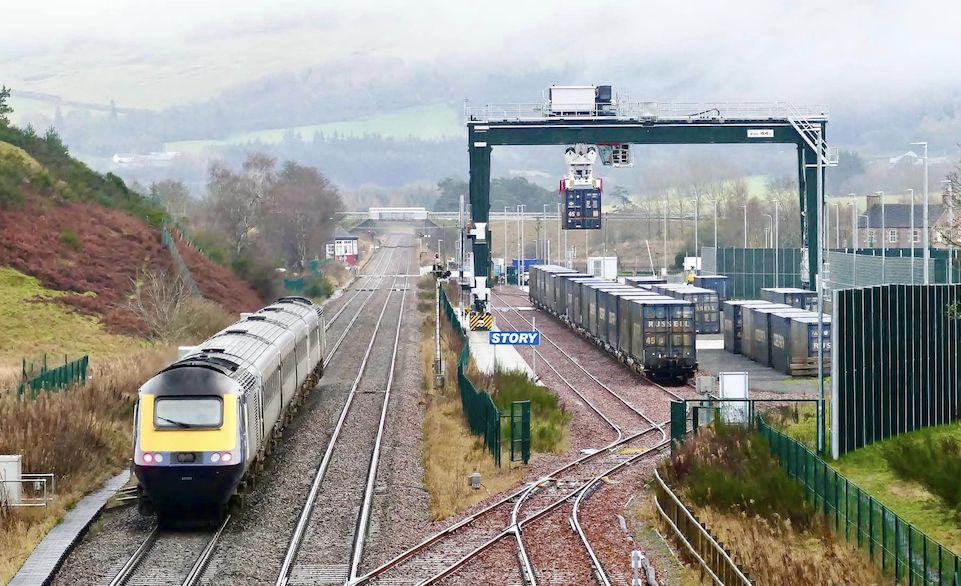There is a political turning of the tide expected in the UK. A general election is imminent. The right-wing Conservatives are expected to relinquish the reins of power to the left-wing Labour Party. That would allow the socialists to put their radically different ideas into action. A shake-up for rail freight could be dawning.
After thirteen years in opposition, the socialist Labour Party is odds-on to form the next government. Labour’s rail freight ambitions share a desire for growth with the existing government. However, their route to achieving that growth goal follows a quite different path to the existing economic policy.
A glimpse into the future
Britain’s politically socialist Labour Party has probably settled on its shadow cabinet. The post holders now are likely to be the post holders when the UK goes to the polls. That could be in just a couple of months, but most expectations are for a late autumn election. The Labour Party leader, Kier Starmer, has already appointed his shadow transport secretary, and his shadow rail minister. There is every expectation that both individuals will take office in Government before the end of the year.
Only last week, the Labour Party was addressing business issues, in front of a very important audience. To help introduce their policies and people, they held a conference for five hundred representatives from across all sectors of the economy. It took only minutes for the event to be fully subscribed. Future transport policy was, of course, among the key areas of focus. Business leaders took a particular interest in rail freight development and reform.
Rail cornerstone of transport policy
The Labour Party is taking significant steps to prepare for the transition to government. Their rhetoric has shifted from opposing government policy to emphasising their own ideas. Already, the party has recorded its opposition to the existing management structure of the British railway industry. With the likelihood of taking power, official access talks have commenced with the nation’s civil service, to ensure a smooth administrative shift.
Labour’s socialist approach is placing importance on rail freight in its vision for economic reform. Unlike previous transport policy statements, the party is now specific about its intentions for the rail sector. Shadow Transport Secretary Louise Haigh has been vocal about the party’s commitment to rail, making it a cornerstone of their transport policy.
Independent review to foster business confidence
Business, though, doesn’t often respond positively to change. In a bid to instil confidence in their plans, Labour has initiated a comprehensive review of rail and its importance to the national economy. Jürgen Maier, a former chief executive of Siemens UK, has been appointed to lead an independent review. According to Labour, the focus is on delivering a rail and transport infrastructure fit for the future, with the aim of boosting jobs, improving value for money, and driving investment and economic growth.

The review, chaired by Maier, will delve into various aspects, including planning processes, capacity of public bodies, opportunities for growth, value for money, and boosting the British supply chain through private investment. Labour’s push for simplified planning processes could potentially make it easier to establish rail freight terminals, particularly in areas of the country underserved at present.
Quality infrastructure for economic growth
However, concerns loom in the supply chain, especially among rail manufacturers. A potential lack of new orders from financially strained train companies is a very real problem. Hitachi and Alstom have already signalled challenges. Hitachi has significantly written down the value of its Newton Aycliffe plant. Alstom is seriously worried about a barren order book at its Derby facility.
Review chair Jürgen Maier acknowledged the impact of poor rail infrastructure on Britain’s productivity and business investment. He expressed support for Labour’s focus on learning from past failures. He emphasised the importance of quality infrastructure for economic growth. It is debatable if a renationalised rail sector would generate new rolling stock orders fast enough. This is a decision that needs to be taken early in any new administration.
Questions still to be answered for rail freight
Perhaps the most important new name for the rail freight sector to learn is that of Stephen Morgan. He already serves as the elected member of parliament (MP) for Portsmouth South. In September, Morgan was made the Shadow Minister of State for Rail. He already has an extensive shadow-ministerial portfolio behind him. Morgan seems ready to take on the rail portfolio. He has already highlighted what he calls the failures of the current transport system under the Conservative government.

Morgan has pledged Labour’s commitment to reforming transport networks, bringing railways into public ownership. However, his stated commitment to prioritising passengers does still leave a question to be answered over the future of rail freight operations. If there has been a success story of the rail industry reforms during the long period of Conservative administration, it has been the resurgence and resilience of the rail freight sector. Labour will be alert to that, and will be watchful not to disrupt a successful sector of the economy. The sector, in turn, will be eager for some certainty before the country goes to the polls.
